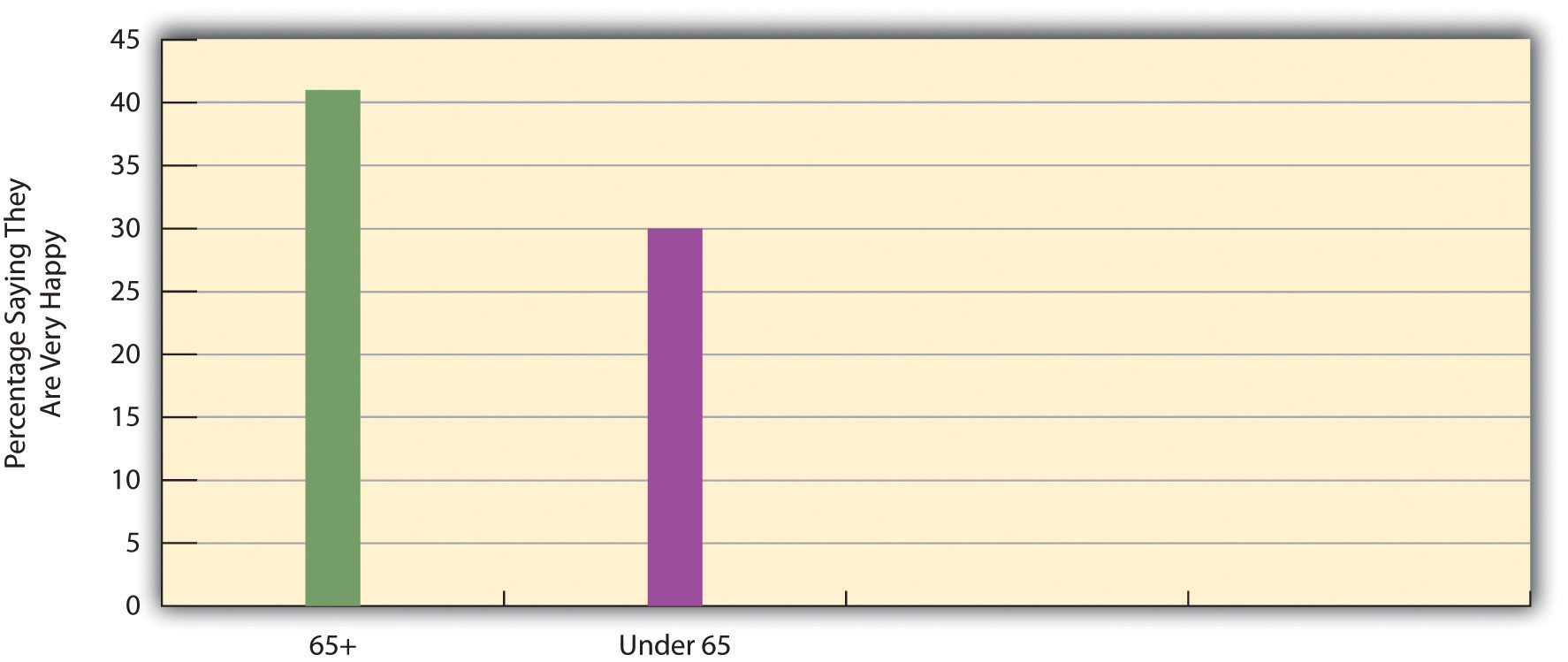Science Differs From Other Disciplines Such as History and the Arts Because Science Relies on
two.1 Sociology as a Social Science
Learning Objectives
- Explain what is meant by maxim that sociology is a social science.
- Describe the difference between a generalization and a law in scientific research.
- List the sources of knowledge on which people rely for their agreement of social reality and explain why the knowledge gained from these sources may sometimes exist faulty.
- List the basic steps of the scientific method.
Like anthropology, economics, political science, and psychology, sociology is a social science. All these disciplines use research to endeavor to understand various aspects of human thought and behavior. Although this chapter naturally focuses on sociological research methods, much of the discussion is likewise relevant for inquiry in the other social and behavioral sciences.
When we say that folklore is a social scientific discipline, we mean that information technology uses the scientific method to effort to understand the many aspects of society that sociologists study. An important goal is to yield generalizations—general statements regarding trends amidst diverse dimensions of social life. We discussed many such generalizations in Chapter one "Sociology and the Sociological Perspective": men are more likely than women to commit suicide, young people were more probable to vote for Obama than McCain in 2008, and so forth. A generalization is only that: a statement of a trend, rather than a hard-and-fast law. For example, the statement that men are more likely than women to commit suicide does not hateful that every homo commits suicide and no woman commits suicide. It means simply that men have a higher suicide charge per unit, even though near men, of course, exercise non commit suicide. Similarly, the statement that immature people were more likely to vote for Obama than for McCain in 2008 does non mean that all immature people voted for Obama; it means but that they were more than likely than not to practise so.

A generalization regarding the 2008 election is that immature people were more probable to vote for Barack Obama than for John McCain. This generalization does not mean that every young person voted for Obama and no immature person voted for McCain; it means only that they were more likely than not to vote for Obama.
Many people will not fit the blueprint of such a generalization, because people are shaped merely not totally determined by their social environment. That is both the fascination and the frustration of sociology. Sociology is fascinating because no matter how much sociologists are able to predict people's behavior, attitudes, and life chances, many people will non fit the predictions. But sociology is frustrating for the same reason. Because people can never be totally explained by their social surround, sociologists tin can never completely understand the sources of their behavior, attitudes, and life chances.
In this sense, sociology equally a social science is very different from a field of study such as physics, in which known laws be for which no exceptions are possible. For case, we call the law of gravity a constabulary because information technology describes a concrete force that exists on the earth at all times and in all places and that always has the same result. If you were to pick upwards the book you are now reading—or the computer or other device on which yous are reading or listening to—and then allow go, the object you lot were holding would definitely fall to the ground. If you did this a 2d time, information technology would fall a second time. If you did this a billion times, it would fall a billion times. In fact, if there were fifty-fifty one time out of a billion that your book or electronic device did not fall downward, our understanding of the physical globe would be totally revolutionized, the world could be in danger, and you could continue television and make a lot of money.

People'south attitudes, behavior, and life chances are influenced but not totally determined by many aspects of their social environment.
For better or worse, people are less anticipated than this object that keeps falling down. Sociology tin can assistance us empathise the social forces that bear on our beliefs, beliefs, and life chances, only it tin can simply go so far. That limitation conceded, sociological understanding can still go fairly far toward such an understanding, and it tin can help us comprehend who we are and what we are by helping us start empathize the profound all the same oft subtle influence of our social backgrounds on and so many things about us.
Although sociology equally a discipline is very different from physics, information technology is not as unlike as one might call up from this and the other "difficult" sciences. Similar these disciplines, sociology as a social science relies heavily on systematic enquiry that follows the standard rules of the scientific method. We render to these rules and the nature of sociological enquiry afterward in this chapter. Suffice it to say here that careful research is essential for a sociological agreement of people, social institutions, and society.
At this point a reader might be saying, "I already know a lot about people. I could have told you that immature people voted for Obama. I already had heard that men have a higher suicide charge per unit than women. Possibly our social backgrounds do influence us in means I had not realized, but what beyond that does sociology take to tell me?"
Students often feel this mode because sociology deals with matters already familiar to them. But about anybody has grown upwardly in a family, so we all know something about it. We read a lot in the media nearly topics like divorce and wellness care, so we all already know something about these, likewise. All this leads some students to wonder if they will larn anything in their introduction to sociology class that they do not already know.
How Practise Nosotros Know What Nosotros Think We Know?
Allow's consider this issue a moment: how do we know what nosotros recollect we know? Our usual knowledge and understanding of social reality come from at to the lowest degree v sources: (a) personal feel; (b) common sense; (c) the media (including the Internet); (d) "expert government," such as teachers, parents, and government officials; and (e) tradition. These are all important sources of our understanding of how the world "works," but at the same time their value tin can oftentimes be very limited.
Personal Feel
Let'southward look at these sources separately past starting with personal experience. Although personal experiences are very important, non everyone has the aforementioned personal feel. This fact casts some doubt on the caste to which our personal experiences tin can assistance us understand everything virtually a topic and the degree to which we tin can draw conclusions from them that necessarily employ to other people. For example, say you grew up in Maine or Vermont, where more than than 98% of the population is white. If you lot relied on your personal feel to summate how many people of color live in the country, yous would conclude that nearly anybody in the U.s. is also white, which certainly is not true. As some other example, say you grew up in a family where your parents had the proverbial perfect matrimony, as they loved each other deeply and rarely argued. If y'all relied on your personal feel to understand the typical American union, y'all would conclude that most marriages were as good every bit your parents' marriage, which, unfortunately, too is not true. Many other examples could be cited here, but the basic point should be clear: although personal experience is better than cypher, information technology often offers only a very limited understanding of social reality other than our own.
Mutual Sense
If personal experience does not assist that much when it comes to making predictions, what about common sense? Although common sense tin be very helpful, it can also contradict itself. For example, which makes more sense, haste makes waste or he or she who hesitates is lost? How about birds of a feather flock together versus opposites attract? Or two heads are ameliorate than ane versus too many cooks spoil the broth? Each of these mutual sayings makes sense, but if sayings that are opposite of each other both make sense, where does the truth prevarication? Can mutual sense always be counted on to help us understand social life? Slightly more than five centuries ago, anybody "knew" the earth was apartment—it was just common sense that it had to be that way. Slightly more than a century ago, some of the leading physicians in the Us believed that women should not get to college considering the stress of higher education would disrupt their menstrual cycles (Ehrenreich & English language, 1979). If that bit of mutual sense(lessness) were still with us, many of the women reading this book would not be in higher.

During the late 19th century, a common belief was that women should non go to higher because the stress of higher pedagogy would disrupt their menstrual cycles. This case shows that mutual sense is often incorrect.
Even so, perhaps there are some things that brand so much sense they just have to be true; if folklore then tells united states that they are true, what accept nosotros learned? Here is an example of such an argument. We all know that older people—those 65 or older—have many more problems than younger people. Outset, their health is mostly worse. 2d, concrete infirmities make it difficult for many elders to walk or otherwise move around. Third, many have seen their spouses and close friends pass abroad and thus live lonelier lives than younger people. Finally, many are on stock-still incomes and confront fiscal difficulties. All of these problems signal that older people should be less happy than younger people. If a sociologist did some enquiry and then reported that older people are indeed less happy than younger people, what take we learned? The sociologist only confirmed the obvious.
The trouble with this confirmation of the obvious is that the "obvious" turns out not to be true after all. In the 2008 General Social Survey, which was given to a random sample of Americans, respondents were asked, "Taken all together, how would you say things are these days? Would you lot say that yous are very happy, pretty happy, or non too happy?" Respondents aged 65 or older were actually slightly more than likely than those younger than 65 to say they were very happy! About 40% of older respondents reported feeling this manner, compared with only 30% of younger respondents (encounter Effigy two.1 "Age and Happiness"). What we all "knew" was obvious from mutual sense turns out non to have been so obvious afterward all.
Figure 2.i Age and Happiness

Source: Data from General Social Survey, 2008.
The Media

The news media ofttimes oversimplify complex topics and in other respects provide a misleading motion picture of social reality. Equally one case, news coverage sensationalizes trigger-happy crime and thus suggests that such crime is more common than it actually is.
If personal feel and common sense do not always assistance that much, how virtually the media? Nosotros learn a lot about current events and social and political issues from the Net, television news, newspapers and magazines, and other media sources. Information technology is certainly important to proceed upward with the news, just media coverage may oversimplify complex topics or even distort what the best evidence from systematic research seems to be telling us. A good example here is crime. Many studies evidence that the media sensationalize crime and advise there is much more than violent crime than at that place really is. For case, in the early 1990s, the evening newscasts on the major networks increased their coverage of murder and other vehement crimes, painting a picture of a nation where criminal offense was growing apace. The reality was very different, notwithstanding, as crime was really declining. The view that criminal offense was growing was thus a myth generated by the media (Kurtz, 1997).
Expert Government
Proficient regime, such as teachers, parents, and regime officials, are a 4th source that influences our understanding of social reality. We larn much from our teachers and parents and perhaps from government officials, just, for better or worse, not all of what we learn from these sources about social reality is completely accurate. Teachers and parents do not always have the latest research prove at their fingertips, and various biases may color their interpretation of any testify with which they are familiar. As many examples from U.South. history illustrate, government officials may simplify or fifty-fifty falsify the facts. We should maybe e'er listen to our teachers and parents and maybe even to authorities officials, but that does non always mean they give us a true, consummate moving picture of social reality.
Tradition
A concluding source that influences our agreement of social reality is tradition, or long-standing ways of thinking about the workings of order. Tradition is by and large valuable, because a society should always be aware of its roots. However, traditional ways of thinking about social reality often plow out to be inaccurate and incomplete. For example, traditional ways of thinking in the U.s. one time assumed that women and people of color were biologically and culturally inferior to men and whites. Although some Americans continue to concord these beliefs, these traditional assumptions have given way to more egalitarian assumptions. As we shall also see in later capacity, virtually sociologists certainly do non believe that women and people of color are biologically and culturally inferior.
If we cannot always trust personal feel, common sense, the media, skilful authorities, and tradition to aid u.s. sympathise social reality, and then the importance of systematic research gathered by sociology and the other social sciences becomes apparent.
The Scientific Method
Every bit noted earlier, because sociology is a social science, sociologists follow the rules of the scientific method in their enquiry. Near readers probably learned these rules in scientific discipline classes in loftier school, college, or both. The scientific method is followed in the natural, physical, and social sciences to assist yield the about authentic and reliable conclusions possible, specially ones that are gratuitous of bias or methodological errors. An overriding principle of the scientific method is that research should exist conducted every bit objectively as possible. Researchers are oft passionate about their work, simply they must take care non to allow the findings they look and fifty-fifty hope to uncover affect how they practise their enquiry. This in plow means that they must not conduct their enquiry in a manner that "helps" achieve the results they await to find. Such bias tin can happen unconsciously, and the scientific method helps reduce the potential for this bias as much as possible.
This potential is arguably greater in the social sciences than in the natural and physical sciences. The political views of chemists and physicists typically exercise not affect how an experiment is performed and how the upshot of the experiment is interpreted. In dissimilarity, researchers in the social sciences, and possibly particularly in folklore, oft have strong feelings near the topics they are studying. Their social and political behavior may thus influence how they perform their inquiry on these topics and how they translate the results of this research. Post-obit the scientific method helps reduce this possible influence.
Every bit you probably learned in a science class, the scientific method involves these basic steps: (a) formulating a hypothesis, (b) measuring and gathering information to test the hypothesis, (c) analyzing these information, and (d) drawing appropriate conclusions (run across Figure 2.2 "The Scientific Method"). In following the scientific method, sociologists are no different from their colleagues in the natural and concrete sciences or the other social sciences, even though their research is very different in other respects. The side by side section discusses the stages of the sociological inquiry process in more than detail.
Central Takeaways
- As a social scientific discipline, sociology presents generalizations, or general statements regarding trends amid various dimensions of social life. There are always many exceptions to whatsoever generalization, because people are non totally determined by their social environment.
- Our knowledge and understanding of social reality usually comes from five sources: (a) personal feel, (b) common sense, (c) the media, (d) adept authorities, and (e) tradition. Sometimes and perhaps oft, the knowledge gained from these sources is faulty.
- Like research in other social sciences, sociological research follows the scientific method to ensure the most authentic and reliable results possible. The bones steps of the scientific method include (a) formulating a hypothesis, (b) measuring and gathering data to test the hypothesis, (c) analyzing these data, and (d) cartoon advisable conclusions.
For Your Review
- Call up of a personal feel y'all have had that might have some sociological relevance. Write a short essay in which yous explain how this feel helped y'all understand some aspect of order. Your essay should also consider whether the understanding gained from your personal experience is generalizable to other people and situations.
- Why practice you retrieve the media sometimes provide a false picture of social reality? Does this problem upshot from honest mistakes, or is the media'south desire to attract more viewers, listeners, and readers to blame?
References
Ehrenreich, B., & English, D. (1979). For her own practiced: 150 years of the experts' advice to women. Garden City, NY: Anchor Books.
Kurtz, H. (1997, August 12). The crime spree on network news. The Washington Post, p. D1.
hallidayanducalliew61.blogspot.com
Source: https://open.lib.umn.edu/sociology/chapter/2-1-sociology-as-a-social-science/